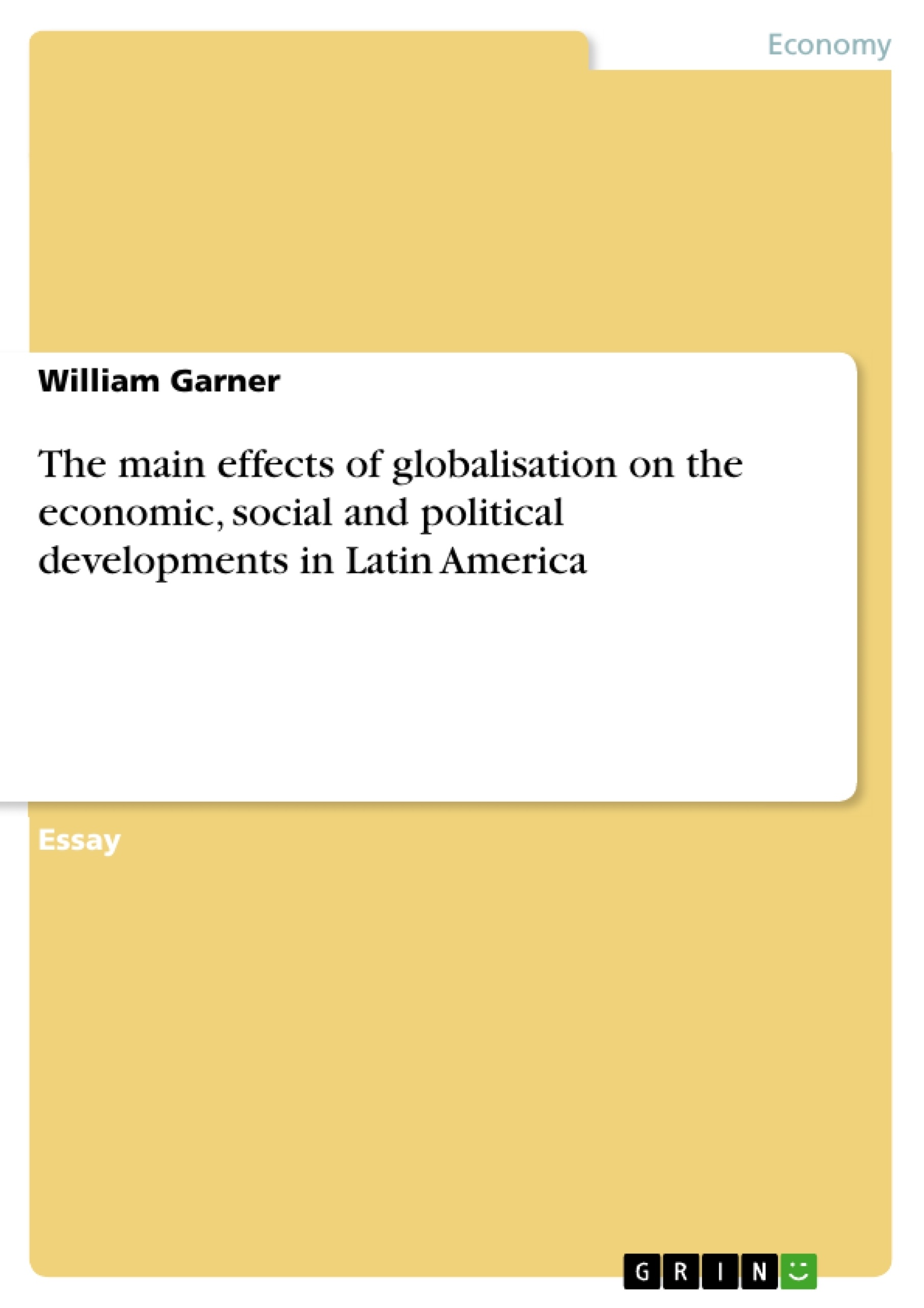In regards to Latin America globalisation has a number of reasons to affect the development of the economic, social and political aspect of the landscape. Key economic effects that need to be expanded on includes the impact of trade in terms of Gross Domestic Product and the Balance of Payments through imports and exports and also the potential benefit of investment opportunities in South America through globalisation. Social impacts that need to be expanded upon include poverty and crime and the politics behind working conditions and regulations.
Politically, governments have been able to communicate more effectively allowing for support between nations, trade pacts and negotiations, while also discussing the neo-liberalist push for Latin America to adopt the Washington Consensus. These key areas need to be discussed more closely, in particularly the negative effects that these can cause and in terms of South America, the exploitation that has been quite common since the growth of globalisation.
Economically, globalisation has had a major impact on Latin America for better and for worse. The spread of neoliberalism in the 1990s has allowed the influx of transnational corporations (TNCs) in Latin America. This US led programme pushed for privatisation of industries and the growth of enterprise and free-market values allowing for TNCs to take advantage of low national wages and new markets in areas such as Latin America.
Inhaltsverzeichnis (Table of Contents)
- Globalisation and its Effects on Development
- Economic Impacts
- Trade and Gross Domestic Product
- Investment Opportunities
- The Shadow Economy
- Social Impacts
- Political Impacts
Zielsetzung und Themenschwerpunkte (Objectives and Key Themes)
This text examines the effects of globalization on the economic, social, and political development of Latin America. It aims to provide a comprehensive understanding of how globalization has impacted various aspects of the region's development, highlighting both positive and negative consequences.
- The impact of globalization on trade, investment, and economic growth in Latin America.
- The relationship between globalization and social issues such as poverty, inequality, and crime.
- The role of globalization in shaping political systems and policies in Latin America.
- The influence of neoliberal policies and the Washington Consensus on Latin American development.
- The challenges posed by the shadow economy and corruption in Latin America.
Zusammenfassung der Kapitel (Chapter Summaries)
The text begins by defining globalization and exploring its various dimensions, including trade, travel, finance, and institutions. It then examines the economic impacts of globalization on Latin America, focusing on the role of transnational corporations (TNCs) and the benefits and drawbacks of export-led growth. The text also discusses the social consequences of globalization, including the rise of inequality and the impact on poverty rates. Finally, the text explores the political ramifications of globalization, particularly in terms of corruption and the influence of the Washington Consensus.
Schlüsselwörter (Keywords)
Key terms and concepts explored in this text include globalization, economic development, social development, political development, Latin America, transnational corporations (TNCs), trade, investment, poverty, inequality, corruption, neoliberalism, Washington Consensus, and the shadow economy.
- Arbeit zitieren
- William Garner (Autor:in), 2015, The main effects of globalisation on the economic, social and political developments in Latin America, München, GRIN Verlag, https://www.grin.com/document/323334




